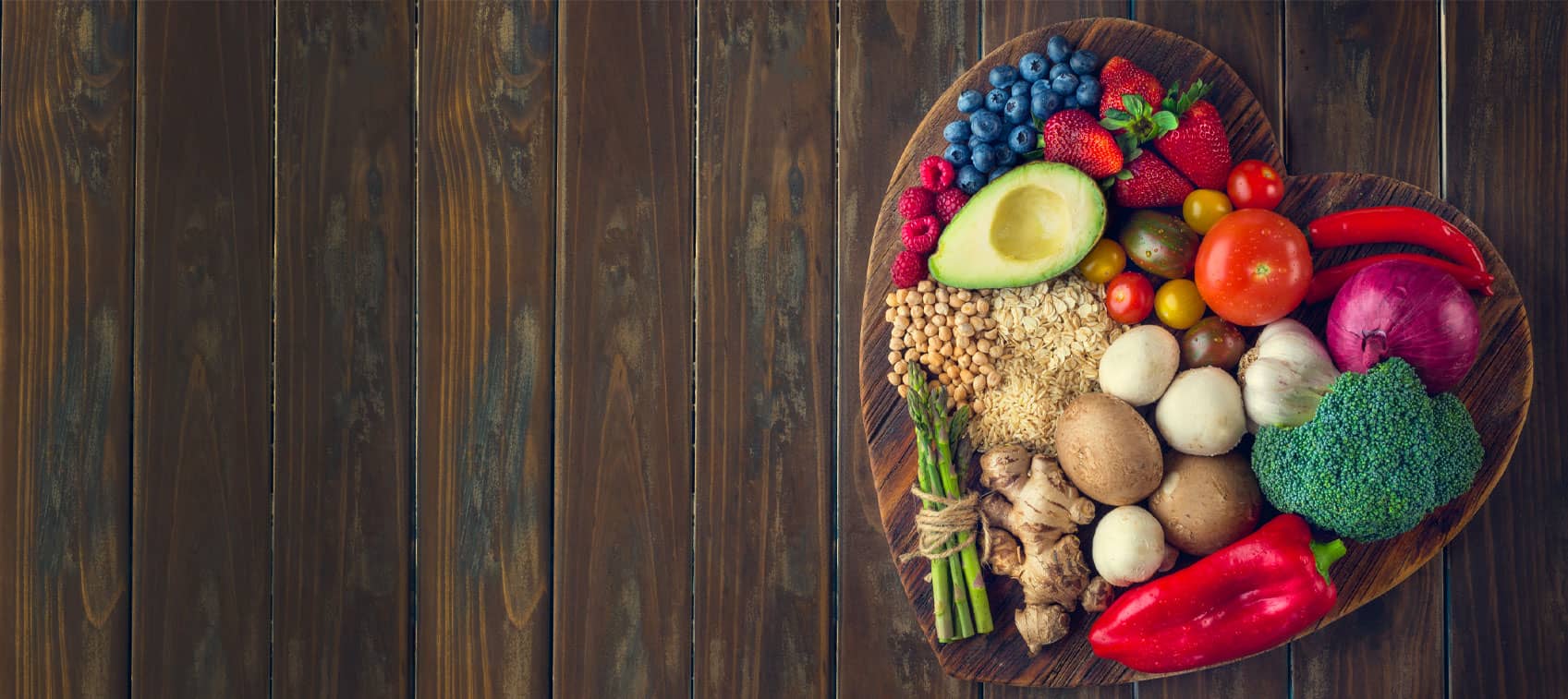
Whole, unprocessed foods contain hundreds of different vitamins, minerals, co-factors, and enzymes in natural balance. Each substance complements and supports the activity of the whole food so the whole is greater than the sum of its parts. Even when a single compound is isolated to make a supplement—no matter how high its dosage—some of the health benefits of the whole food are missing.
The term “superfood” is reserved for foods that are more nutrient- and enzyme-dense than the everyday foods we eat. Carrots, for example, provide a wide range of carotenes, while superfoods contain carotenes plus high levels of other essential complexes such as flavonoids, tocopherols, amino acids, and enzymes—all of which enhance the effects of the carotenes. And superfoods contain these compounds in a highly concentrated form, so that small amounts confer significant benefits.
What Are the Best Superfoods?
Here are some of the best superfoods you can add to your diet.
Spirulina
Spirulina a primitive plant belonging to the group of blue-green algae, and it grows naturally in certain lakes located in northern Africa, Peru, and Mexico. It was a dietary staple as far back as the Aztec civilization, but it has only been extensively researched in the last 40 years. Spirulina:
- Contains all eight essential amino acids. (An “essential” amino acid cannot be manufactured by the body, but can be used by the body to manufacture other amino acids.)
- Is lower in fat and provides more usable protein (the kind properly digested and assimilated by the body) than virtually all other protein sources, including meats, milk, eggs, and tofu.
- Contains the highest known levels of vitamin B12 and is particularly beneficial for mental function and alleviating depression.
For a maintenance dosage take 750–1,000 mg per day. For serious health problems, dosages range from about 20–30 grams per day.
Royal Jelly
Royal jelly is an incredible nutrient- and hormone-rich substance that modern science has not yet fully analyzed, much less duplicated. What we do know is that it is responsible for turning an ordinary worker bee into a queen bee.
Queen bees start out genetically the same as worker bees. Once a bee has been designated the queen, a group of nurse bees produce royal jelly and feed it directly to the developing queen. Soon after beginning this royal diet, the queen is transformed into a larger, superior bee, 40 percent larger and 60 percent heavier than other bees. Worker bees live for seven or eight weeks, but the queen will live five to seven years!
Many of the amazing properties of royal jelly remain a mystery. It’s undisputed, though, that even a small amount can have a positive and powerful effect on the human body, truly making it one of the best superfoods out there. It can:
- Promote proper blood flow and proper tone of the veins in your legs by changing the lipid/protein consistency in the blood.
- Re-establish growth patterns in premature infants when other therapies fail.
- Produce weight gain and improved nutritional status in weakened convalescent adults.
- Give a noticeable lift to energy, vitality, and even libido.
- Boost immunity by increasing gamma globulin levels.
For a maintenance dosage, I recommend a minimum of 50 mg of high-quality royal jelly. Make sure the company you’re buying from is highly reputable and only uses products that have been refrigerated and freeze-dried within 24 hours.
Bee Pollen
Throughout history, cultures the world over have touted the benefits of bee pollen. Much like royal jelly, it is one of nature’s marvels that we have yet to fully understand. Pollen is the male seed of flowering plants. Bees collect it, mix it with honey, and carry it back to the hive.
Bee pollen contains concentrated amounts of all known vitamins (from A to K), all 22 amino acids, including the eight essential ones, 27 minerals, unique and beneficial pigments, and several hormone-like compounds. In addition, bee pollen:
- Has been shown to support the immune system and keep defenses strong; particularly important when pollen and other potential allergens fill the air.
- Stimulates the production of hemoglobin in the blood, which increases the oxygen-carrying capacity of the blood and improves energy levels, overall stamina, and endurance.
- Is a rich source of rutin, a bioflavonoid that helps strengthen capillary walls, improve heart function and respiration, and promote healthy blood pressure; it’s excellent for maintaining circulatory health.
- Can help support a healthy prostate and sexual performance. Researchers at the University of Sarajevo reported that after 30 days of treatment with bee pollen, more than 50 percent of impotent males showed improved sexual performance and enhanced sperm production.
- Contains powerful antibiotic mixtures that are protective against E. coli, Salmonella, and other strains of bacteria. European doctors routinely administer bee pollen because of its immune-stimulating capabilities.
You need only a small amount of bee pollen daily as a preventive—100 mg a day is plenty. There are many ways to add bee pollen to your diet. If you like the somewhat flowery taste, sprinkle it on salads, cereals, soups, and drinks, or you can eat it straight.
Adaptogens
I believe adaptogens also qualify as some of the best superfoods. These plants modulate all sorts of body functions, including the immune system and energy production.
The old "spring tonics" often had adaptogens as their main ingredient (other than alcohol, of course). These plants generally work by regulating stress hormones and neurotransmitters, and have the unique ability to boost a system that's underperforming and suppress that system when it's overstimulated.
One of the most well-known adaptogens is Asian ginseng, which has been used in traditional Chinese medicine to enhance energy levels and regulate the adrenal glands. Another useful adaptogen is ashwagandha, sometimes called Indian ginseng. It has a long history of traditional use in Ayurvedic medicine for supporting mental function, your mood, and your stress response.
Other “Super” Foods
While not technically considered "superfoods," the following foods are still super in the sense that they are nutrient dense, disease fighting, and health promoting. Along with the best superfoods mentioned above, consider adding more of the following whole foods to your diet:
- Avocados contain good fats, and studies have shown that a diet enriched with avocados actually decrease LDL ("bad") blood cholesterol levels. That said, moderation is key. Overindulging in any fat may cause abnormal weight gain which can then lead to other health problems.
- Broccoli provides a compound called sulforaphane, which has been shown to protect against cancer. The only caveat is that its formation requires the presence of an enzyme called myrosinase, which overcooking can destroy. To preserve myrosinase, steam your broccoli for two to four minutes but no longer, or just eat it raw. Three to five servings of broccoli are what it takes to reap the benefits, but the number of servings could be cut in half if you consume broccoli sprouts at the same time as you eat your steamed or raw broccoli.
- Carob is a great substitute for chocolate. Not only is it naturally sweet, but it tastes like chocolate with none of the bad effects. It's a complex carbohydrate rich in B-vitamins and minerals. Compared to chocolate, it has half the calories, more than two times as much calcium, and no caffeine!
- Garlic has insecticidal, antibacterial, antifungal, hypoglycemic, and anti-atherosclerotic (heart disease preventing) properties. Research has found that garlic powder not only reduces calcification of the arteries but also reduces plaque formation by up to 40 percent—and can even dissolve existing plaque by 25 percent. One brand to try is Kyolic, at a dosage of 1,200 mg a day.
- Olive oil, particularly the extra virgin variety, contains a molecule called oleocanthal that works in exactly the same fashion as ibuprofen at inhibiting two inflammation-inducing enzymes (COX-1 and COX-2). Regular consumption of extra-virgin olive oil can provide a continuous dose of this anti-inflammatory compound, which could have profound results over a period of time.
Proper nutrition can mean the difference between good long-term health and lifelong illness. Add these superfoods and whole foods to your diet today, and enjoy the many health benefits for years to come.


